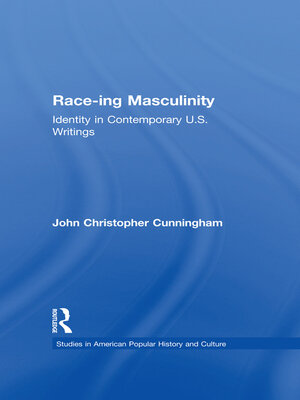Race-ing Masculinity
ebook ∣ Identity in Contemporary U.S. Writings · Studies in American Popular History and Culture
By John Christopher Cunningham

Sign up to save your library
With an OverDrive account, you can save your favorite libraries for at-a-glance information about availability. Find out more about OverDrive accounts.
Find this title in Libby, the library reading app by OverDrive.



Search for a digital library with this title
Title found at these libraries:
| Library Name | Distance |
|---|---|
| Loading... |
This study explores the intersection of race and gender identity in writings by contemporary American men of color, showing how ostensibly sexist or homophobic texts coexist with or are engendered by articulations of anti-racism. Conversely, certain articulations of gender concerns produce reactionary ideas about race. The author examines Asian American identity in the works of Frank Chin, John Okada, and Shawn Hsu Wong, contending that these writers exhibit a strong masculinist/sexist bias, limiting their value for Asian American women and homosexuals. The author then looks at the work of African American writer Charles Johnson. He examines the conflict between feminism and male supremacy in Johnson's novels, tracing the relationship between this vision of gender and the conservatism of Johnson's approach to race issues. The author also considers the discourse of perverse sexuality with particular attention to the possibility of a countertradition of the joto, or queer in the canon of Chicano novels from Jose Antonio Villareal to Arturo Islas. Through an examination of the readings of Richard Rodriguez and Oscar Zeta Acosta, Cunningham demonstrates the interplay of homosocial sexual politics with Rodriguez and Acosta's respective conservative and revolutionary approaches to race. Finally, the study considers how claims about the universality of postmodern experience implicit in Don DeLillo's novel, White Noise, actually bear the particularizing marks of whiteness and masculinity. Includes index and bibliography







